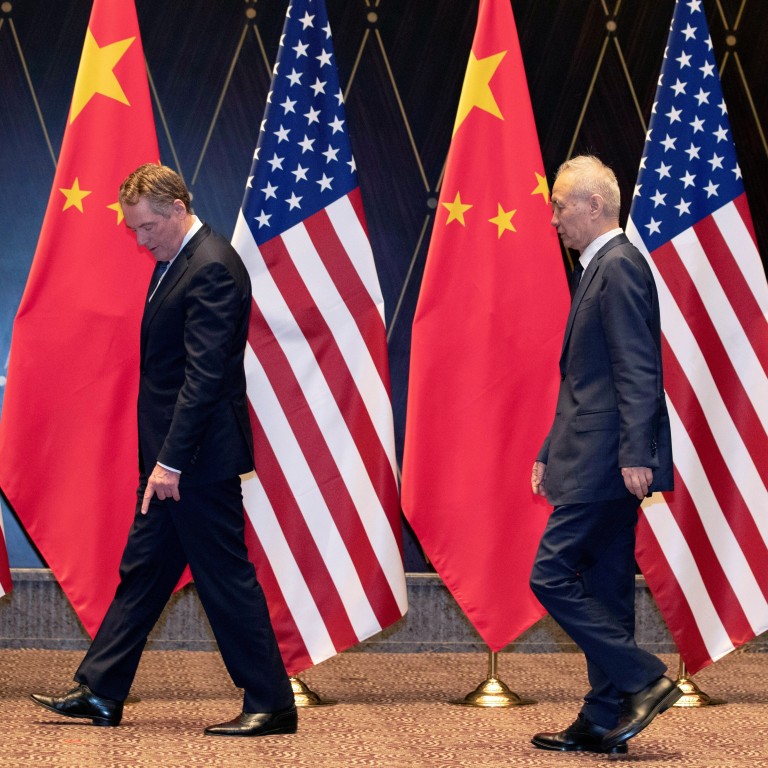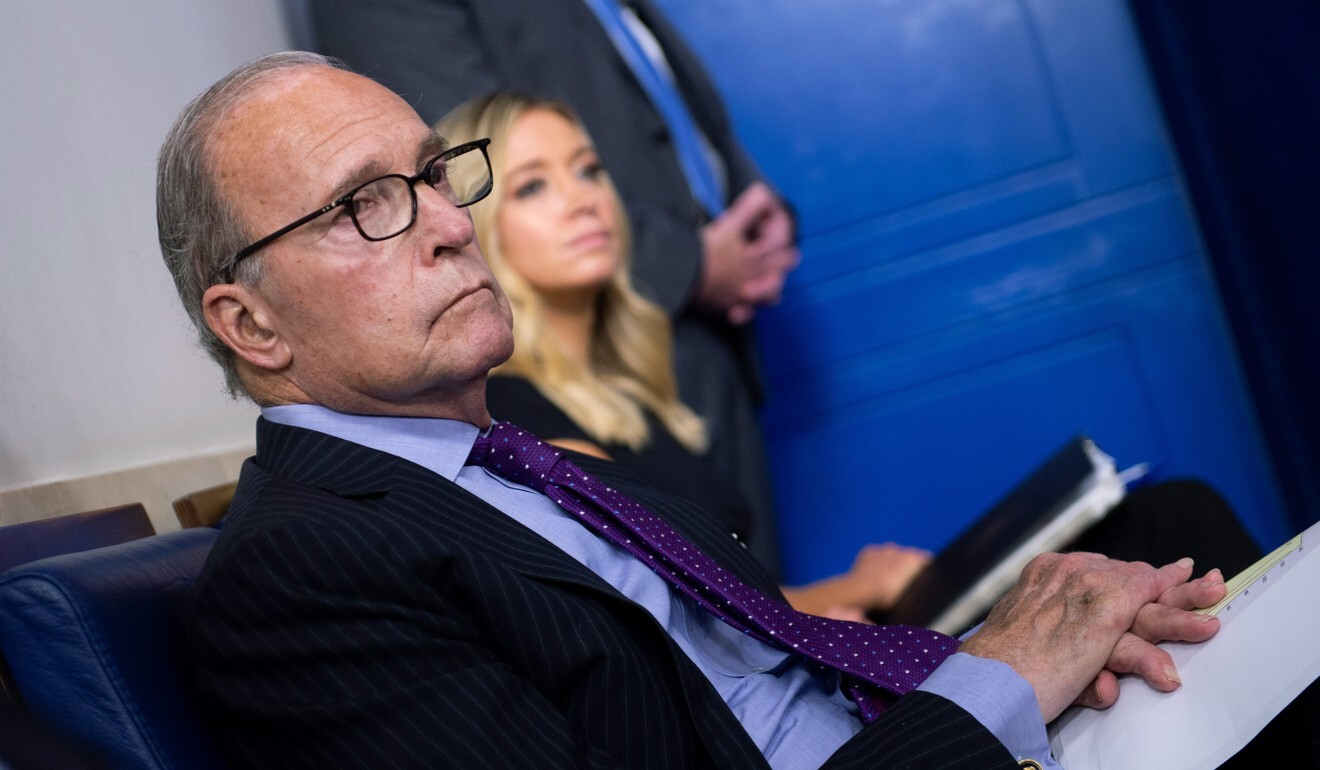
Delayed US-China trade review could give Beijing some breathing space as Donald Trump seeks re-election
- The two sides were due to review their phase one trade deal after six months, but one observer said the delay was ‘no bad thing’
- China says it has tried to honour the deal to buy more US goods, but the coronavirus pandemic has been a problem
The review slated for Saturday was delayed because of scheduling conflicts with the annual Beidaihe meeting, where the top Chinese leadership discusses key policy issues, and no new date had been set, according to Reuters.
News of the delay surprised the markets because the US had struck a positive note the day before, with White House economic adviser Larry Kudlow saying that the administration was “satisfied with China’s progress”.
US-China trade review postponed to allow time for more purchases
Chinese officials never confirmed a date for the planned video conference. When asked about the talks on Friday and Saturday, both the foreign and commerce ministries said only that information would be released once confirmed.
The last public communications between top negotiators dates back to May 8, when Vice-Premier Liu He held phone conversations with US Trade Representative Robert Lighthizer, US Treasury Secretary Steven Mnuchin over economic and public health cooperation.
The Phase 1 deal was signed in Washington in mid-January and came into effect a month later. Beijing promised to buy more American goods, including US$77 billion worth this year, with a goal of raising the value of purchases by US$200 billion compared with 2017 levels.
He Weiwen, former economic and commercial counsellor at Chinese consulates-general in San Francisco and New York, said the deal included a clause requesting a review after six months, which meant it should have taken place around now.

“A few days earlier or later doesn’t mean both sides encountered new problems. A slight adjustment of the negotiation date has often been seen in previous bilateral talks. It doesn’t mean anything is wrong,” he added.
Beijing has tried to honour the deal, which is one of its few remaining connections with Donald Trump’s White House amid increasing tensions over issues such as Hong Kong, Xinjiang, Taiwan and the Covid-19 pandemic.
Central bank governor Yi Gang, who is also a member of the trade negotiation team, said earlier this week that China will try to honour the deal and promised to further open up its financial sector.
However, assistant commerce minister Ren Hongbin complained on Thursday that some Chinese purchases had been affected by the pandemic and a US export ban.
“We hope that the US can stop the restrictive and discriminatory measures against Chinese enterprises and create conditions for the Phase 1 trade deal implementation,” he said.
Countdown to US-China trade talks, but little hope of bigger breakthrough
Chen Fengying, a senior fellow at the China Institute of Contemporary International Relations, said the postponement was “not a bad thing” because many promises could not be delivered in the middle of the pandemic.
“We will buy more if we can. After all, China needs lots of soybeans, pork, shale gas and other commodities,” she said.
“However, it will be hard to narrow some differences, such as the direction of China’s development, because the US has now politicised everything ahead of the election.”
Chen said both sides certainly need to talk, but doubt there will be any consensus.
“Meeting all changes with constancy may be the best strategy. We can have a review or even talks three months later when the US presidential election is finished and the pandemic is better addressed,” she added.

